Product Strategy

The Appleton Greene Corporate Training Program (CTP) for Product Strategy is provided by Mrs. Floyd Certified Learning Provider (CLP). Program Specifications: Monthly cost USD$2,500.00; Monthly Workshops 6 hours; Monthly Support 4 hours; Program Duration 12 months; Program orders subject to ongoing availability.

Personal Profile
Mrs. Floyd is a seasoned product marketing professional with over 12 years of experience in the Education, SaaS, data security, and marketing industries. She has dedicated her career to bridging the gap between innovative products and the markets they serve. Her journey began in the education sector, where she played a pivotal role in launching an open-source learning management system into the higher education market. This early success led her to a prominent role at a leading educational organization, where she was instrumental in introducing a new credit recovery solution to the K-12 market.
Mrs. Floyd’s expertise expanded as she led the product marketing team and go-to-market strategy for a digital marketing agency, targeting small business owners nationwide with comprehensive marketing solutions across search, social, and email. In 2020, Mrs. Floyd began consulting on product strategy and positioning for leading B2B tech companies, where she made significant contributions across several industries, including SaaS, data security, IT security, and professional services.
Education has been a cornerstone of Mrs. Floyd’s professional development. She holds a BA in Communications from the University of Colorado at Boulder and an MBA in Marketing from the University of Phoenix. Additionally, she has pursued ongoing personal and professional development by earning certifications from various industry organizations, reflecting her commitment to continuous learning and staying ahead of trends.
As a former collegiate track athlete, Mrs. Floyd’s professional philosophy emphasizes teamwork and a pragmatic approach to achieving goals. She is passionate about reducing burnout associated with product launches, advocating for processes that make these initiatives both effective and efficient. This philosophy extends to her personal life, where she helps women find work-life balance and advance their consulting careers. Outside of her professional endeavors, Mrs. Floyd is a dedicated wife and mother of four. Her family enjoys traveling and exploring new experiences together, fueling her drive to create supportive environments both at work and in her community.
Mrs. Floyd’s extensive experience, diverse skill set, and passion for intuitive marketing practices position her as a valuable asset to any organization seeking to enhance their product marketing efforts. She looks forward to continuing to make a positive impact in the industry and helping teams achieve their product launch goals efficiently and effectively.
To request further information about Mrs. Floyd through Appleton Greene, please Click Here.
(CLP) Programs
Appleton Greene corporate training programs are all process-driven. They are used as vehicles to implement tangible business processes within clients’ organizations, together with training, support and facilitation during the use of these processes. Corporate training programs are therefore implemented over a sustainable period of time, that is to say, between 1 year (incorporating 12 monthly workshops), and 4 years (incorporating 48 monthly workshops). Your program information guide will specify how long each program takes to complete. Each monthly workshop takes 6 hours to implement and can be undertaken either on the client’s premises, an Appleton Greene serviced office, or online via the internet. This enables clients to implement each part of their business process, before moving onto the next stage of the program and enables employees to plan their study time around their current work commitments. The result is far greater program benefit, over a more sustainable period of time and a significantly improved return on investment.
Appleton Greene uses standard and bespoke corporate training programs as vessels to transfer business process improvement knowledge into the heart of our clients’ organizations. Each individual program focuses upon the implementation of a specific business process, which enables clients to easily quantify their return on investment. There are hundreds of established Appleton Greene corporate training products now available to clients within customer services, e-business, finance, globalization, human resources, information technology, legal, management, marketing and production. It does not matter whether a client’s employees are located within one office, or an unlimited number of international offices, we can still bring them together to learn and implement specific business processes collectively. Our approach to global localization enables us to provide clients with a truly international service with that all important personal touch. Appleton Greene corporate training programs can be provided virtually or locally and they are all unique in that they individually focus upon a specific business function. All (CLP) programs are implemented over a sustainable period of time, usually between 1-4 years, incorporating 12-48 monthly workshops and professional support is consistently provided during this time by qualified learning providers and where appropriate, by Accredited Consultants.
Executive summary
Product Strategy
According to Harvard Business School, out of the 30,000 new products that are launched every year, an alarming 95% of them fail. And a botched product launch is often to blame. The product strategy is the driving force behind getting products and services to market and keeping them there. To do it effectively and profitably, you need to know the overarching voice of the customer, enable sales with the right story and value propositions for each persona, and accelerate adoption and revenue growth. From pricing strategies, market research, messaging and positioning, to personas, packaging, and go-to-market plans, you need a product strategy that successfully influences people to buy your product or services and provides a competitive edge. This program facilitates workshops that empower product development and marketing teams to create a well-defined roadmap and strategic direction for launching and positioning new products or services in the market. It guarantees that product and marketing teams establish effective connections with the right audience by delivering tailored messages that address customer pain points and drive desired business outcomes.
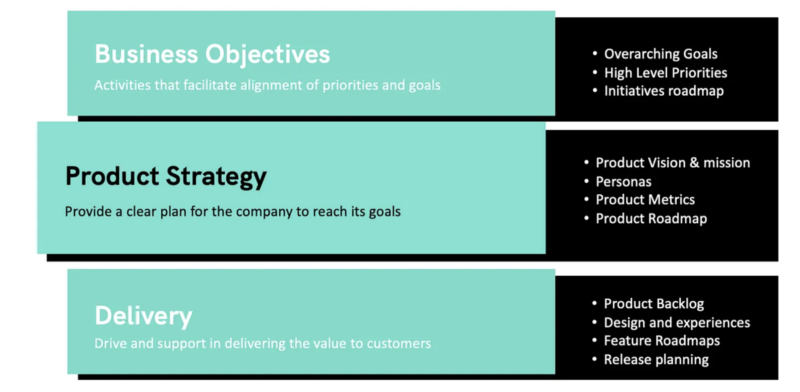
In today’s rapidly evolving business environment, companies often face significant challenges when it comes to developing and implementing effective product strategies. These obstacles can impede growth and market success, making it essential for businesses to tackle them proactively. This program provides you with the necessary tools to enhance customer feedback loops, optimize pricing strategies, scale successful products, and sustain a competitive advantage, ultimately leading to improved business outcomes. By the end of the program, your product teams will possess the frameworks, tools, and insights needed to effectively address critical pain points in product launches and transform them into effective strategies that drive business growth, including the ability to:
● Develop Clear Product Differentiation: Companies often struggle to define what makes their product unique. This can lead to a weak market presence, where potential customers see no compelling reason to choose one product over another, resulting in commoditization and pricing pressure. Without a distinct value proposition, sales cycles may elongate, and opportunities can be missed. This training specifically focuses on helping participants analyze competitor positioning and craft unique value propositions and compelling messaging, enabling them to tell a distinctive story that sets their product apart.
● Identify Target Market Segments: Many businesses waste resources on broad or misaligned marketing efforts due to the inability to accurately identify and target the right market segments. As a result, they experience low engagement and poor sales. Relying on assumptions instead of data can stall growth, as marketing, sales, and product development teams fail to connect with their ideal audience. The Market Problems and Target Market Segmentation workshop teaches data-driven methods to segment, prioritize, and understand customer personas, ensuring businesses effectively target their most valuable segments.
● Align Product-Market Fit: Even well-designed products can fail if they do not meet the needs of the target market. Companies that overlook customer feedback risk building features that don’t address pressing issues, leading to poor adoption and increased churn. The Product Strategy workshop guides participants in refining their product features through real-time customer feedback and market research, ensuring better alignment with customer needs and enhancing overall product resonance.
● Create Customer Feedback Loops: Without a structured approach to gathering and integrating customer feedback, companies miss critical insights into user needs, leading to stagnation and increased customer churn. A lack of feedback hinders innovation and causes products to deviate from user requirements. The Customer Feedback workshop equips teams with best practices to establish effective feedback loops, allowing them to align product roadmaps with evolving customer preferences.
● Drive Efficient Go-to-Market Processes: Launching products efficiently is essential, yet many companies execute go-to-market strategies in a disjointed manner, leading to missed deadlines and underwhelming launches. These inefficiencies can stem from a lack of departmental alignment and unclear roles. The Go-to-Market Strategy workshop provides tools for creating cohesive and effective processes, focusing on cross-functional collaboration and defined performance metrics to ensure successful product launches.
● Optimize Pricing Strategies: Poor pricing decisions can alienate potential customers or diminish product value, severely limiting market adoption and profitability. Companies often struggle to find the right balance between customer willingness to pay and their own profitability. The Pricing Strategy workshop guides participants in developing competitive, value-based pricing models, utilizing real-world case studies to help them find the optimal pricing strategy for their products.
● Scale Successful Products: Transitioning from initial success to market-wide acceptance is often challenging due to issues with quality, production, or market readiness. Without a clear strategic plan, scaling can uncover weaknesses in customer support and product delivery. The Scaling Success workshop equips teams with frameworks and strategies to build scalable systems, allowing for consistent product quality and an excellent customer experience as they grow.
● Create Consistent Sales Enablement and Support: Sales teams frequently lack the necessary tools and training to promote products effectively. Without alignment between product, marketing, customer success, and sales teams, messaging can become inconsistent, resulting in lost deals and prolonged sales cycles. The Sales Enablement workshop focuses on aligning these teams with the right resources and training, ensuring that sales reps are equipped to communicate value effectively.
● Capture Sufficient Data for Making Informed Product Decisions: Many companies do not have the proper data systems in place to inform their strategies, relying on intuition instead. This can lead to misaligned efforts and wasted resources. Our Metrics & Measurement workshop teaches participants how to collect and interpret critical data, empowering them to make informed decisions and adapt strategies rapidly based on data-driven insights.
● Maintain a Competitive Advantage: In rapidly changing markets, sustaining a competitive edge requires continuous innovation. Companies risk losing market share and brand relevance if they fail to adapt. The Growth Strategy workshop provides actionable strategies for evolving product offerings and market positioning, helping teams stay ahead of competitors and maintain their market presence.
The approach taught in these workshops combine a customer-centric focus with the latest methodologies in product marketing. By participating in these workshops, clients will develop strong product strategies that not only address their existing pain points but also drive growth and enhance market relevance. This approach is essential for businesses that seek to navigate the complexities of product strategy effectively and stay ahead in a dynamic marketplace.

Case Study: Apple Inc.
Introduction
Apple Inc., established in 1976, has become one of the world’s leading technology companies, known for its innovative products, including the iPhone, iPad, Mac computers, and numerous services. Apple’s commitment to design, functionality, and ecosystem integration positions it as a prime example of how a unique program proposition can drive competitive advantage and customer loyalty.
Importance of Unique Program Proposition
Apple’s unique proposition revolves around three core elements: exceptional user experience, seamless integration across devices, and a strong brand identity. These elements not only differentiate Apple from its competitors but also create a loyal customer base that often prefers Apple products over others.
● Exceptional User Experience
Case Insight: Apple invests heavily in user research and product testing. For example, the development of iOS 14 involved extensive beta testing, leading to features designed based on user feedback.
Outcome: This user-centric approach resulted in a mobile operating system that prioritizes user satisfaction, reflected in high customer satisfaction ratings (89% according to JD Power).
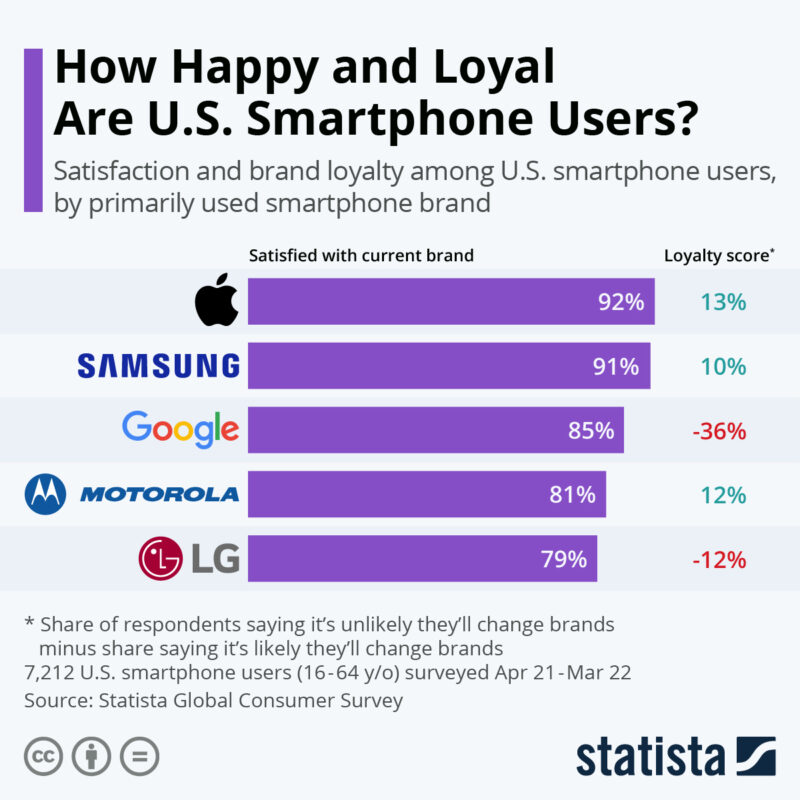
● Seamless Integration
Case Insight: The integration of iCloud, Apple Music, and other services showcases how Apple programs work in harmony across different devices. This was evident in the launch of the Apple Ecosystem in 2020.
Outcome: This integration encourages customers to stay within the Apple ecosystem, increasing customer retention rates significantly (approximately 90% of iPhone users continue to buy Apple devices).
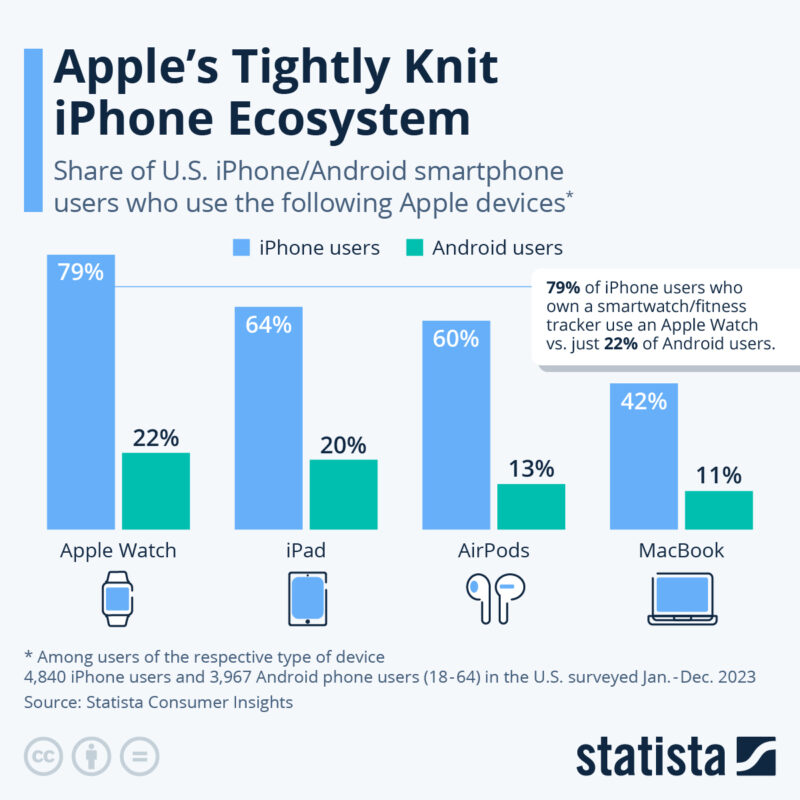
● Strong Brand Identity
Case Insight: Through marketing strategies that emphasize innovation, quality, and status, Apple has become synonymous with premium technology. Campaigns like the “Think Different” advertisements have solidified its brand image since the late 1990s.
Outcome: As a result, Apple consistently ranks among the top brands globally, boasting a brand value of approximately $263 billion in 2023 (Brand Finance).
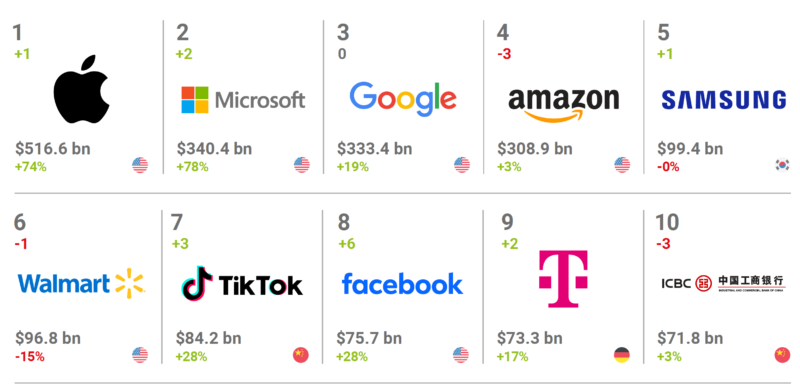
Conclusion
Apple Inc. exemplifies how a unique program proposition, centered on user experience, integration, and brand identity, can lead to sustained competitive advantages and business success. By learning from Apple’s approach, organizations can develop and implement their unique program propositions that resonate with their target audience and drive business outcomes.
Curriculum
Product Strategy – Part 1- Year 1
- Part 1 Month 1 Market Problems
- Part 1 Month 2 Product Strategy
- Part 1 Month 3 Pricing Strategy
- Part 1 Month 4 Messaging & Positioning
- Part 1 Month 5 Go-to-Market Strategy
- Part 1 Month 6 Channel Strategy
- Part 1 Month 7 Growth Strategy
- Part 1 Month 8 Sales Enablement
- Part 1 Month 9 Campaign Execution
- Part 1 Month 10 Metrics & Measurements
- Part 1 Month 11 Customer Feedback
- Part 1 Month 12 Scaling Success
Program Objectives
The following list represents the Key Program Objectives (KPO) for the Appleton Greene Product Strategy corporate training program.
Product Strategy – Part 1- Year 1
- Part 1 Month 1 Market Problems – The Market Problems workshop highlights the critical role of market research in driving successful B2B tech product launches and effective marketing strategies. Participants will master methodologies for rigorous market analysis, target market segmentation, and leveraging both quantitative and qualitative data to inform strategic decisions, validate market demand, and address customer needs. Key topics include competitive analysis, customer segmentation, and persona development, enabling participants to align product strategies with market dynamics and customer preferences. By refining go-to-market strategies and proactively addressing risks, attendees will gain the skills to identify growth opportunities, evaluate competitive threats, and validate product positioning. This foundational workshop equips participants with a robust framework for developing customer-centric strategies, ensuring they are prepared to navigate complex markets, foster innovation, and achieve sustainable growth.
- Part 1 Month 2 Product Strategy – Building on market research insights, this workshop equips participants to craft a cohesive product strategy aligned with market needs and business objectives. Participants will learn to define a clear product vision, prioritize features based on market demand and competitive differentiation, and develop actionable roadmaps to guide development. The workshop emphasizes effective communication, teaching participants to articulate the product’s value proposition and differentiation through compelling narratives that align cross-functional teams and gain stakeholder buy-in. By the end, participants will have a robust framework to integrate market insights, customer needs, and business goals into a strategy that drives product development and supports go-to-market success.
- Part 1 Month 3 Pricing Strategy – The Pricing Strategy workshop equips participants with the skills to develop effective pricing and packaging strategies for B2B products. Attendees will learn value-based pricing, competitive analysis, and strategic packaging to optimize profitability and align with market dynamics. Practical exercises and case studies will guide participants in crafting pricing models that capture product value, address diverse customer segments, and balance profitability with market competitiveness. By the end, participants will be prepared to implement pricing strategies that drive revenue growth, enhance product positioning, and sustain long-term customer relationships in competitive markets.
- Part 1 Month 4 Messaging & Positioning – The Messaging and Positioning workshop equips participants with the skills to create persona-based messaging strategies tailored to diverse buying groups and complex B2B tech sales journeys. Building on insights from prior sessions, this workshop emphasizes crafting robust messaging frameworks that resonate with specific buyer personas and align with their needs throughout the buying process. Participants will learn to address customer pain points, articulate product benefits, and reinforce brand positioning within competitive markets. Key topics include developing persona-driven messaging, creating tailored value propositions, and aligning messaging strategies across all stages of the B2B buying journey. Through hands-on exercises and proven templates, attendees will refine their ability to craft compelling narratives that differentiate their offerings and captivate target audiences. By the end of the workshop, participants will possess the tools and frameworks to develop strategic, persona-specific messaging that enhances engagement, fortifies brand perception, and drives sustainable growth in competitive markets.
- Part 1 Month 5 Go-to-Market Strategy – This workshop equips participants with the skills to develop effective go-to-market (GTM) strategies for successful B2B product launches. Building on prior insights, attendees will learn to create comprehensive GTM plans that integrate marketing, sales, and customer success efforts to maximize market penetration and accelerate adoption. Using proven frameworks, participants will explore key elements such as market segmentation, competitive positioning, channel selection, and performance metrics. Practical exercises will enhance their ability to craft compelling messaging, select optimal distribution channels, and execute GTM plans aligned with business objectives. By the end, participants will have the tools to confidently launch products, mitigate risks, and leverage market opportunities to drive customer acquisition and sustainable growth.
- Part 1 Month 6 Channel Strategy – The Channel Strategies workshop equips participants with the skills to develop and optimize effective B2B channel strategies. Attendees will explore key areas such as identifying and evaluating channel partners, creating robust incentives, and resolving channel conflicts. The session covers best practices in partner enablement, channel marketing, and strategy development, emphasizing techniques for maximizing reach and revenue through strategic channel programs. Participants will learn to design tailored channel initiatives, implement effective onboarding strategies, and leverage partner ecosystems to drive market expansion. Through case studies and exercises, they will gain hands-on experience in optimizing partner performance and strengthening market presence. By the workshop’s end, participants will be prepared to navigate channel complexities, foster strong partnerships, and achieve sustained growth in competitive B2B markets.
- Part 1 Month 7 Growth Strategy – The Growth Strategy workshop equips participants with the tools to enhance retention, satisfaction, and advocacy for B2B products. Attendees will learn to build proactive customer engagement frameworks, improve satisfaction, and implement strategies for retention and upselling. Emphasizing customer support, feedback-driven product improvement, and long-term relationships, the workshop covers customer success frameworks, addressing pain points, and maximizing lifetime value through effective account management. Through hands-on exercises, participants will design strategies to foster loyalty and differentiate their offerings. By the end, they will have actionable insights to optimize retention, turn customers into advocates, and drive sustained business growth.
- Part 1 Month 8 Sales Enablement – The Sales Enablement workshop equips participants with the skills and strategies to enhance sales effectiveness and accelerate pipeline growth in complex B2B buying journeys. Attendees will learn to align sales strategies with buyer needs, develop impactful sales collateral, deliver effective product training, and streamline workflows to boost productivity. Key topics include crafting tailored messaging, leveraging advanced tools, overcoming objections, and refining competitive positioning to close deals more effectively. By the end of the workshop, participants will have the insights and tools to drive superior sales performance, engage diverse buying groups, and achieve sustained business growth.
- Part 1 Month 9 Campaign Execution – The Campaign Execution workshop provides a comprehensive guide to planning and implementing successful B2B marketing campaigns. Participants will explore integrated strategies across digital, social, traditional media, and direct sales channels, with a focus on account-based marketing (ABM) to target key decision-makers effectively. The workshop emphasizes crafting compelling campaigns using proven frameworks like the “Big Idea” while leveraging analytics to monitor performance and optimize strategies in real-time. Attendees will gain actionable skills for demand generation and ABM campaigns that engage audiences, drive outcomes, and ensure alignment with business goals. By the end, participants will be equipped to execute impactful campaigns that adapt to evolving market dynamics and foster sustained growth.
- Part 1 Month 10 Metrics & Measurements – Effective metrics are essential for guiding product, marketing, and team success by providing actionable insights for strategic decision-making. This workshop focuses on identifying and optimizing key performance indicators (KPIs) critical to business success, including customer acquisition, product awareness, content performance, sales enablement, and customer retention. Participants will explore metrics like customer acquisition cost, churn rates, NPS, and sales velocity, learning to interpret and leverage them to refine marketing strategies and product offerings. Through hands-on exercises, attendees will gain practical skills to analyze metrics, adapt to market dynamics, and contribute strategically to their organization’s success. By the end, participants will be equipped to drive measurable results and foster sustainable growth in competitive markets.
- Part 1 Month 11 Customer Feedback – This workshop equips participants with strategies to effectively manage customer and internal stakeholder feedback, fostering continuous improvement and innovation. Attendees will explore methods for collecting, analyzing, and integrating feedback into product development and marketing initiatives. Key topics include leveraging the Voice of the Customer (VoC), aligning stakeholder perspectives with customer insights, and prioritizing feedback to enhance product-market fit and customer satisfaction. Through hands-on exercises and real-world examples, participants will develop actionable frameworks for using feedback to drive product innovation, improve internal alignment, and achieve business growth. By the end, attendees will be prepared to implement best practices in feedback management, ensuring products align with customer needs and market dynamics.
- Part 1 Month 12 Scaling Success – This workshop focuses on post-launch optimization and scaling strategies to ensure sustained growth and profitability. Participants will learn to evaluate launch performance by analyzing key metrics, customer feedback, sales data, and market penetration to refine their GTM strategies. Emphasizing agility and iterative improvement, attendees will explore techniques for rapid prototyping, testing, and optimizing product features, pricing, and campaigns based on real-time insights. The session also covers scaling operations, including resource allocation, team readiness, and process optimization, to expand market reach and enhance customer acquisition and retention. By the end, participants will leave with a clear roadmap to scale effectively in competitive markets, ensuring long-term success..
Methodology
Product Strategy
To effectively achieve the objectives of launching an effective go-to-market strategy, several key methodologies and theories will be integrated into the training program. These methodologies are chosen to ensure comprehensive learning, practical application, and alignment with industry best practices, including:
Experiential Learning: Incorporating experiential learning methodologies allows participants to engage actively in real-world simulations, case studies, and practical exercises. This approach fosters deeper understanding and retention of concepts by applying theoretical knowledge to practical scenarios. For example, workshops focusing on market discovery or customer feedback management will involve hands-on exercises where participants analyze market data or simulate stakeholder interactions.
Pragmatic Institute’s Framework: Leveraging the Pragmatic Institute’s framework ensures a structured approach to product management and marketing. This includes methodologies for market validation, product lifecycle management (PLM), and go-to-market strategies. Participants will learn how to apply these frameworks in their roles to align product development with market needs, optimize product life cycles, and execute effective go-to-market plans.
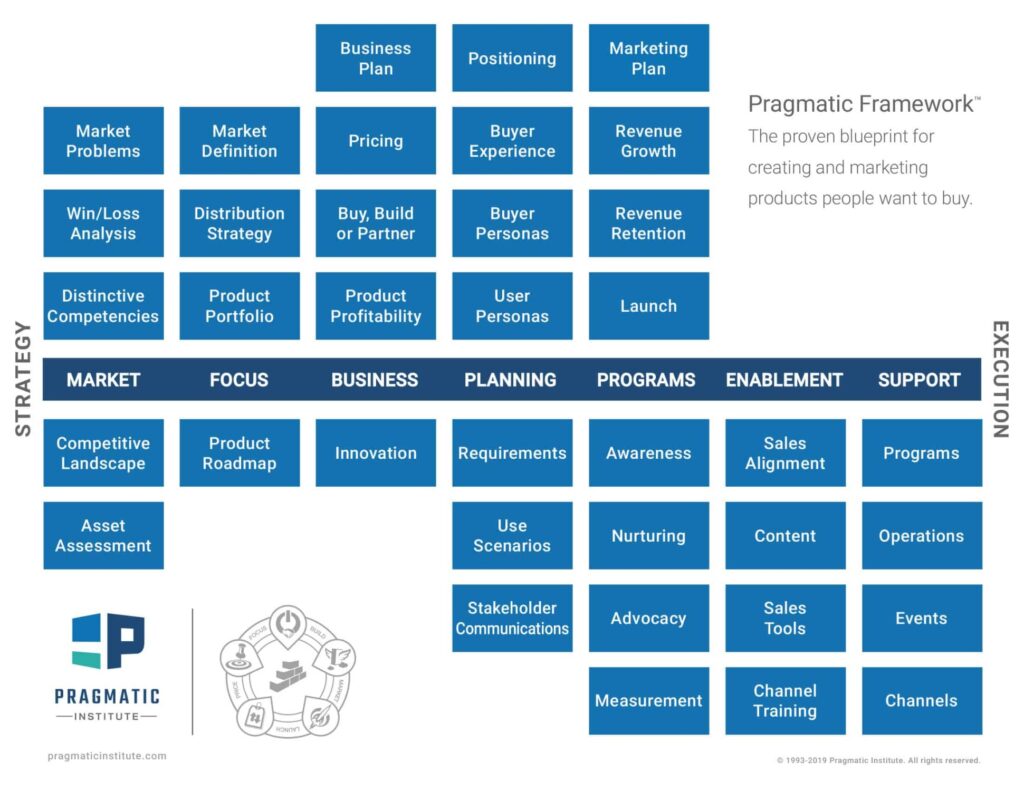
Positioning by April Dunford: April Dunford’s methodology emphasizes the critical importance of positioning in product marketing. Participants will learn how to identify market categories, frame their products as the best solution within those categories, and differentiate effectively. Workshops focused on messaging and positioning will leverage April Dunford’s framework to develop clear, compelling positioning strategies that resonate with target audiences and effectively communicate value.
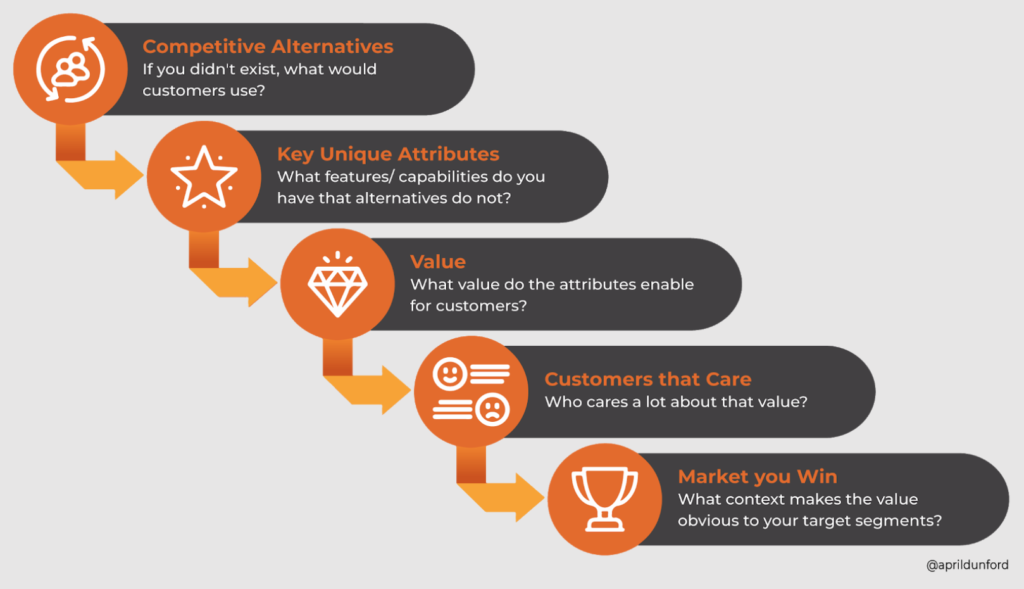
Product Marketing Alliance (PMA) Framework: PMA provides a comprehensive framework for product marketers, covering various aspects from product launch to lifecycle management. The training program will integrate PMA’s best practices in go-to-market strategy, customer segmentation, and product lifecycle management. Participants will gain insights into effective market research methodologies, competitive analysis, and leveraging customer feedback throughout the product lifecycle.
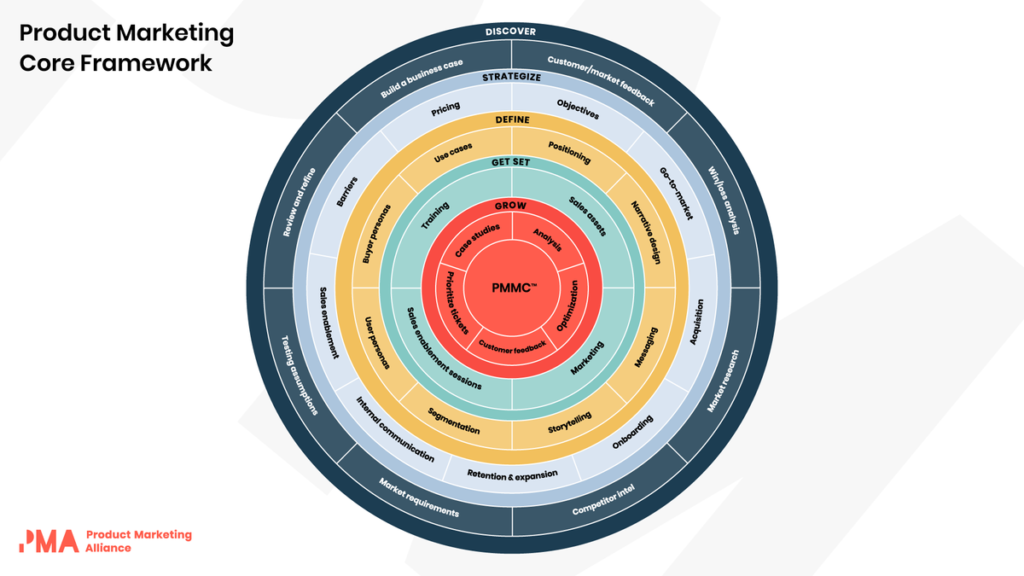
Validation and Iteration: Both April Dunford’s and PMA methodologies emphasize the importance of validation and iteration in product marketing. Participants will learn how to validate market assumptions through customer interviews, market research, and data analysis. Workshops on market discovery and customer feedback management will incorporate iterative processes, allowing participants to refine product strategies based on continuous feedback loops.
StoryBrand Framework: Created by Donald Miller, this framework helps businesses clarify their message using elements of storytelling. It emphasizes the importance of positioning the customer as the hero of the story and positioning the business as the guide that helps the hero achieve their goals.
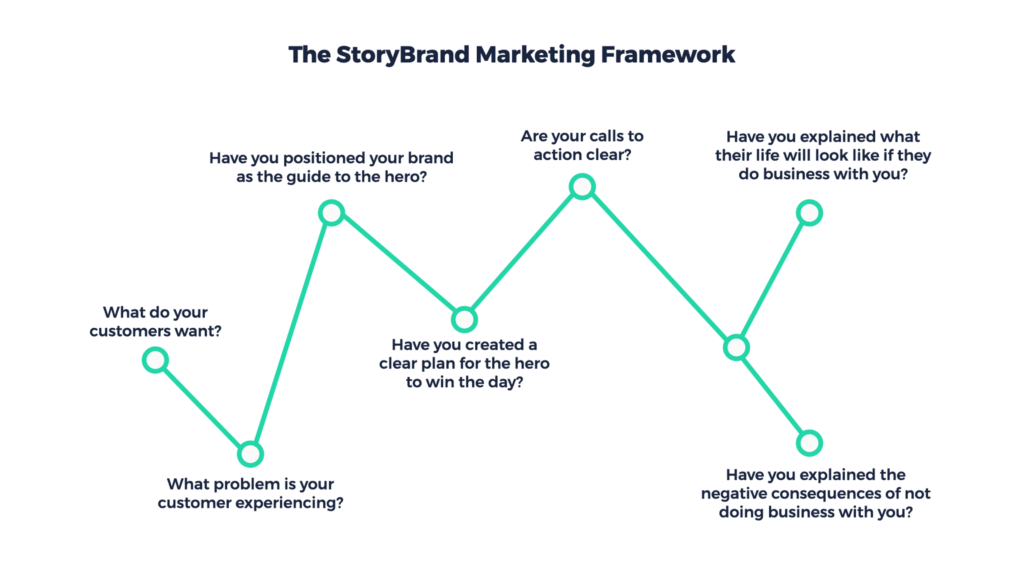
SiriusDecisions Demand Waterfall and ABM Framework : In integrating the SiriusDecisions Demand Unit Waterfall and Account-Based Marketing (ABM) frameworks into our training workshop, we aim to equip participants with comprehensive strategies tailored for today’s B2B landscape. The Demand Unit Waterfall methodology emphasizes understanding and engaging buying groups within target accounts, shifting focus from individual leads to collective decision-making units. This approach ensures alignment between sales and marketing efforts throughout the customer journey, optimizing conversion rates and accelerating sales cycles by addressing the complex dynamics of B2B purchasing decisions.
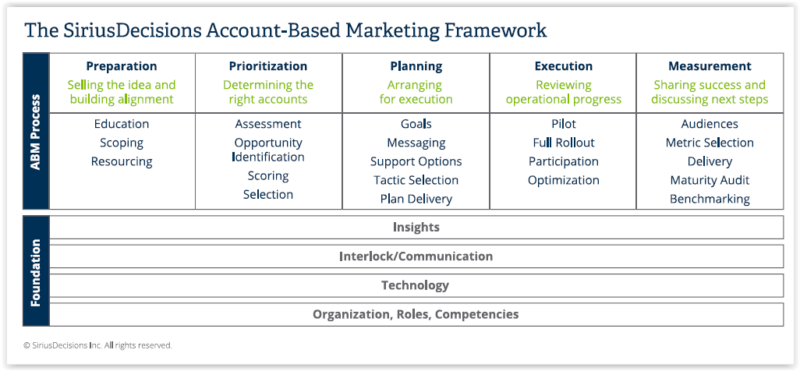
Simultaneously, the ABM framework from SiriusDecisions enables a strategic approach to targeting high-value accounts with personalized marketing and sales strategies. By identifying key decision-makers and influencers within target companies, organizations can tailor their messaging and outreach efforts to resonate with the specific needs and challenges of each account. This methodology enhances customer engagement and loyalty by delivering relevant and timely content and solutions, thereby driving higher ROI and fostering long-term relationships with valuable accounts.
Industries
This service is primarily available to the following industry sectors:

Education
Over the last decade, the education sector has experienced a seismic shift with the rise of educational technology (EdTech) companies. The accessibility of digital tools, accelerated by widespread internet adoption and increasing demand for innovative learning solutions, has resulted in an explosion of EdTech startups. This rapid growth has not only transformed traditional teaching methods but also created a highly competitive environment where distinguishing one’s offerings has become increasingly challenging.
In this crowded market, many education companies struggle to stand out amidst the sheer volume of products and services available. The proliferation of platforms offering everything from e-learning solutions to personalized tutoring and content creation tools has led to an abundance of options for educators and learners alike. As a result, the need for effective product strategy has never been more critical.
Current Landscape
As we navigate through the present day, the COVID-19 pandemic has starkly illustrated the importance of adaptable EdTech solutions. The sudden shift to remote learning highlighted both the opportunities and the challenges faced by education companies. Those with a strong product strategy were better positioned to respond quickly and address the evolving needs of educators seeking reliable digital tools.
To succeed, education companies must not only deliver high-quality solutions but also develop and communicate a clear value proposition that resonates with their target audiences. This is where targeted product strategy training becomes invaluable, enabling organizations to refine their messaging and differentiate their offerings in this competitive space.
Future Outlook
Looking ahead, the EdTech sector is on the brink of further transformation, driven by continuous advancements in artificial intelligence, data analytics, and immersive learning technologies. As these innovations reshape educational paradigms, companies that invest in product strategy training will be better equipped to anticipate trends, adapt swiftly, and tailor their offerings to meet the diverse needs of learners and educators.
For EdTech companies, investing in product strategy is not just an option; it’s a necessity. A robust product strategy can provide a roadmap for innovation, enhance market relevance, and ultimately drive growth. By equipping your team with the skills to analyze market needs, incorporate user feedback, and position your products effectively, you can cultivate a competitive advantage in this fast-evolving landscape.
Investing in product strategy empowers organizations to capitalize on future opportunities, navigate challenges, and position itself as a leader in the EdTech market.
Banking and Financial Services
In the past decade, the banking and financial services industry has undergone profound transformations driven by technological advancements. What was once a brick-and-mortar, paper-based industry has rapidly evolved into a digital-first landscape, characterized by online banking platforms, mobile apps, and an array of fintech solutions. This digital shift has improved customer access and convenience but has also resulted in a crowded marketplace where standing out is increasingly challenging.
With the rise of digital technologies, customers now expect seamless, intuitive experiences similar to those provided by leading tech companies. However, as the number of banking service options has proliferated, effective product strategies have become essential for differentiation and customer engagement.
Current Position
Today, banks must navigate a landscape shaped by rapid digital transformation, stringent regulatory requirements, and intense competition from fintech disruptors. Customers demand quick transactions, personalized financial insights, and real-time support. Here, product strategy plays a pivotal role—enabling banks to communicate benefits and build trust.
Additionally, fintech companies offer innovative services like peer-to-peer lending and digital payments, directly competing with traditional banks. In this competitive environment, banks need strong product strategies to highlight their unique advantages, such as regulatory compliance, personalized advice, and longstanding trust.
As regulations around data privacy and cybersecurity evolve, banks must transparently communicate their commitment to compliance through effective product strategies. Furthermore, leveraging data analytics and AI to personalize customer engagement is critical and requires clear messaging about how these tailored solutions meet individual financial needs.
Future Outlook
Looking ahead, the banking sector will continue to be shaped by technological innovations and evolving consumer expectations. Product strategy will remain a crucial component in introducing new technologies, driving adoption, and enhancing customer satisfaction.
With ongoing advancements in AI, blockchain, and big data analytics, banks must articulate the real-world benefits of these innovations to diverse audiences. As digital banking services become mainstream, a focus on education about the convenience and security of these offerings will drive customer loyalty.
The future will also emphasize customer experience and personalization. Understanding customer journeys and anticipating needs will be key to positioning products as valuable solutions. Additionally, staying informed about regulatory changes will enable banks to navigate compliance challenges effectively and maintain customer trust.
Why invest in product strategy:
As the banking and financial services sector evolves, investing in product strategy training is essential for success. A robust product strategy enables organizations to innovate, differentiate their offerings, and effectively communicate value to customers. By equipping teams with the skills to analyze market dynamics and incorporate customer feedback, banks can enhance their competitive edge.
Organizations that prioritize product strategy training will be better prepared to navigate the complexities of the industry, respond to technological disruptions, and build lasting customer relationships. This investment is not only critical for driving growth but also for establishing a trusted presence in an increasingly digital-first banking landscape.

Technology
In the past decade, the technology industry has undergone rapid transformation, characterized by significant advancements in digital technology and innovation. Emerging technologies such as cloud computing, artificial intelligence (AI), machine learning, and the Internet of Things (IoT) have revolutionized how businesses operate and interact with customers. This digital shift has improved accessibility and efficiency but has also led to a highly competitive landscape where differentiation is crucial for success.
The advent of software-as-a-service (SaaS) and subscription-based models has reshaped consumer expectations, with customers now demanding seamless, user-friendly experiences. As the number of technology solutions has proliferated, effective product strategies have become essential for engaging customers and establishing a competitive edge.
Current Position
Today, technology companies must navigate a landscape defined by rapid innovation, evolving customer needs, and intense competition from both established players and agile startups. Customers now expect personalized solutions, immediate support, and intuitive interfaces. Here, product strategy is vital for effectively communicating the benefits of products and building customer trust.
Furthermore, competition from disruptive startups that leverage emerging technologies poses a direct challenge to traditional technology firms. In this landscape, strong product strategies are necessary for companies to highlight their unique strengths, such as expertise, reliability, and comprehensive service offerings.
As regulations related to data privacy, cybersecurity, and intellectual property evolve, tech companies must transparently demonstrate their commitment to compliance through effective product strategies. Additionally, leveraging data analytics to gain insights into customer behavior and preferences is crucial and requires clear messaging about how these tailored solutions address specific needs.
Future Outlook
Looking ahead, the technology sector will continue to be shaped by ongoing innovation and shifting consumer expectations. Product strategy will remain essential in introducing new technologies, driving market adoption, and enhancing customer satisfaction.
With advancements in AI, machine learning, and blockchain, technology companies must clearly articulate the tangible benefits of these innovations to diverse audiences. As digital solutions become standard, educating customers on the advantages and security features of these offerings will be vital for fostering loyalty.
The future will also emphasize enhanced customer experiences and personalization. Understanding customer journeys and anticipating needs will be crucial for positioning products as effective solutions. Moreover, staying abreast of regulatory changes will help tech companies navigate compliance challenges and maintain customer trust.
Why Invest in Product Strategy:
As the technology industry evolves, investing in product strategy training is essential for sustained success. A robust product strategy allows organizations to innovate, differentiate their offerings, and effectively convey value to their customers. By equipping teams with the skills to analyze market trends and incorporate customer feedback, tech companies can enhance their competitive position.
Organizations that prioritize product strategy training will be better equipped to navigate the complexities of the industry, respond to rapid technological advancements, and build lasting relationships with customers. This investment is not only crucial for driving growth but also for establishing a trusted and influential presence in an increasingly digital-first technology landscape.

Media & Marketing
Over the past decade, the media and marketing industry has evolved dramatically due to technological advancements, shifting consumer behaviors, and dynamic market forces. Initially rooted in print media, the industry has transitioned to a digital-first landscape dominated by social media, data-driven marketing, and experiential content. The rise of digital platforms has revolutionized advertising approaches, enabling brands to reach audiences more effectively through personalized and targeted strategies.
As the internet democratized information and consumer engagement, marketers shifted focus from traditional advertising to platforms like social media, digital analytics, and influencer collaborations. The result is a landscape that demands creativity and adaptability, as brands strive to capture consumer attention amidst the noise of fragmented media consumption.
Current Position
The media and marketing industry is at a pivotal moment, shaped by rapid digital transformation and evolving consumer expectations. Digital advertising expenditures now exceed traditional media, fueled by the ubiquity of mobile devices and online content consumption. Marketers leverage data analytics and AI to refine their strategies, emphasizing personalized experiences that resonate with target audiences.
Content creation is central to modern marketing, with brands investing heavily in engaging and shareable content. Influencer marketing, branded entertainment, and user-generated content blur the lines between advertising and entertainment, necessitating authentic and transparent approaches.
Emerging technologies like augmented reality (AR), virtual reality (VR), and AI are transforming consumer interaction with brands, providing immersive experiences and enhancing engagement. However, as scrutiny around data privacy and regulatory challenges intensifies, marketers must navigate compliance requirements while maintaining targeted strategies.
Finally, globalization trends continue to influence marketing strategies as brands seek to resonate with diverse consumers across international markets. Navigating cultural sensitivities and local preferences is crucial for successful campaigns that maintain brand authenticity.
Future Outlook
The media and marketing industry’s future is poised for further evolution, driven by ongoing digital changes and heightened consumer scrutiny. As technology evolves, brands must embrace sophisticated personalized marketing strategies, utilizing data analytics for targeted, relevant messaging.
Content—now a multifaceted concept—will increasingly incorporate video, interactive storytelling, and immersive experiences. Agile content strategies that engage consumers across various platforms will be key to capturing attention in a crowded market.
Building consumer trust will be vital as ethical marketing practices and transparency take precedence. Brands that prioritize privacy, combat misinformation, and demonstrate corporate social responsibility will resonate more with discerning consumers.
AI and automation will continue transforming marketing operations, enhancing efficiency in campaign management and real-time customer engagement. Organizations that leverage these technologies will position themselves competitively.
Adapting to evolving regulatory environments will be essential. Marketers must implement robust data governance practices to ensure compliance with regulations like GDPR and CCPA while building consumer trust.
Additionally, as globalization trends persist, successful marketing strategies require a balance of global brand consistency and localized relevance. Brands must navigate cultural nuances and regional preferences to effectively engage diverse audiences internationally.
Why Invest in Product Strategy:
As the media and marketing industry undergoes transformative changes, investing in product strategy training is essential for success. A robust product strategy equips organizations to innovate, differentiate their offerings, and communicate value effectively.
By developing skills in data analysis, customer engagement, and compliance navigation, media and marketing professionals can enhance their competitive edge in a rapidly shifting landscape. Prioritizing product strategy training enables organizations to adapt to technological advancements, uphold ethical standards, and build lasting consumer relationships.
With a commitment to ongoing learning and strategic adaptation, companies can thrive in the dynamic media and marketing environment, positioning themselves for success amidst the challenges and opportunities ahead.

Healthcare
In the past decade, the healthcare industry has experienced significant transformations driven by medical discoveries, technological innovations, and evolving patient needs. This evolution has transitioned from rudimentary medical practices to a complex ecosystem that includes hospitals, pharmaceuticals, medical devices, biotechnology, insurance, and digital health solutions.
The rise of digital health technologies—such as telemedicine, electronic health records (EHRs), and wearable devices—has revolutionized patient care delivery. This shift was catalyzed by breakthroughs in medical science, including advancements in genomic sequencing and personalized medicine. However, challenges remain, including rising healthcare costs, access disparities, and the ongoing need for more patient-centric care models, highlighted by the COVID-19 pandemic.
Current Position
Today, the healthcare industry is navigating profound changes fueled by digital innovation, regulatory reforms, and shifting consumer expectations. The rapid adoption of telehealth services, accelerated by the pandemic, underscores the growing demand for accessible, efficient healthcare solutions. This digital transformation enhances patient engagement and operational efficiency, setting new standards for care delivery.
Healthcare providers are increasingly moving from fee-for-service models to value-based care, which emphasizes quality and patient outcomes over the volume of services rendered. This approach leverages data analytics to manage population health proactively, reducing costs and improving health outcomes.
Innovations like precision medicine, guided by genomic insights and AI-driven analytics, are tailoring treatments to individual patient characteristics. Similarly, collaboration between healthcare providers, technology companies, and academic institutions is driving breakthroughs in areas like digital health and biotechnology.
However, the industry continues to face challenges, including workforce shortages, regulatory complexities, and data privacy concerns. Ensuring equitable access and addressing healthcare disparities remain top priorities as organizations strive to improve health outcomes for all demographics.
Future Outlook
Looking ahead, the healthcare sector is poised for remarkable opportunities, driven by technological advancements and evolving consumer demands. Key trends include:
● Digital Health Integration: Telehealth and remote monitoring technologies will further enhance patient engagement and streamline care. Digital solutions will play a crucial role in managing chronic conditions and personalizing treatment plans.
● Shift Towards Value-Based Care: Value-based care models will gain traction, incentivizing healthcare providers to focus on patient outcomes and preventive care, fostering collaboration among stakeholders.
● Advancements in Precision Medicine: Continued progress in genomics and molecular diagnostics will refine treatment approaches, optimizing patient outcomes while minimizing adverse effects.
● Healthcare Ecosystem Collaboration: Partnerships will deepen between healthcare providers and tech companies, fostering innovation and accelerating the rollout of new therapies and technologies.
● Focus on Health Equity and Access: Initiatives to enhance health equity, including technology-driven community interventions, will address disparities in healthcare access, particularly for underserved populations.
● Navigating Regulatory Changes: Regulatory reforms will continue to shape the healthcare landscape, influencing accessibility, affordability, and operational practices.
Why Invest in Product Strategy:
As the healthcare industry evolves, investing in product strategy training is vital for long-term success. A robust product strategy equips organizations to innovate, differentiate offerings, and effectively communicate value in a complex landscape.
Training in product strategy enables healthcare professionals to analyze market dynamics, integrate patient feedback, and adapt to regulatory changes, enhancing organizational agility. Prioritizing product strategy training not only positions healthcare organizations to navigate ongoing transformations but also strengthens their ability to deliver impactful, patient-centered care.
By embracing strategic product development, healthcare entities can optimize their operations, improve patient outcomes, and solidify their place in an increasingly competitive environment, ultimately shaping the future of healthcare delivery on a global scale.
Locations
This service is primarily available within the following locations:

Phoenix, AZ
Phoenix, Arizona, has experienced a remarkable evolution in its business landscape, particularly with the rise of B2B tech companies. Originally an agricultural center, the city’s strategic evolution into a technology hub has been marked by a combination of factors, including a growing population, a favorable business environment, and the development of a skilled workforce supported by major educational institutions like Arizona State University.
The latter half of the 20th century saw Phoenix attract tech companies specializing in telecommunications, software development, and IT services, thanks to its affordable cost of living and advantageous location. As this tech ecosystem continues to grow, there is an increasing demand for specialized services like product strategy, which are essential for companies aiming to differentiate their offerings in a competitive market.
Current Position
Today, Phoenix is a vibrant center for B2B tech companies, hosting a diverse range of startups and established firms across sectors such as healthcare technology, cybersecurity, and digital marketing. The city’s attractive operating costs and proximity to major markets in California further enhance its appeal, making it a prime location for tech firms looking to gain a competitive edge.
However, navigating this rapidly evolving landscape requires a robust product strategy. Effective product strategy allows companies to identify market needs, communicate their unique value propositions, and adapt to the dynamic nature of the tech industry. As Phoenix’s tech sector matures, companies that invest in product strategy will be better positioned to capture market share and drive innovation.
Future Outlook
Looking ahead, Phoenix is well-positioned for sustainable growth, with ongoing investments in technology and infrastructure. The city is becoming increasingly recognized for its advancements in artificial intelligence, software development, and cybersecurity. As tech companies leverage these innovations, the need for effective product strategies becomes even more critical.
The rise of AI and machine learning will transform business operations and open new avenues for product development. Companies that strategically position their offerings within these emerging technologies can not only enhance their product lines but also achieve greater operational efficiencies.
Furthermore, as Phoenix diversifies its economic base into sectors like clean energy and fintech, the demand for tailored tech solutions will rise. A well-articulated product strategy is essential for companies looking to navigate these opportunities and position themselves favorably in new markets.
Why invest in Product Strategy
For B2B tech companies in Phoenix, investing in product strategy is not just a luxury; it is a necessity for achieving business success and standing out in a competitive landscape. A strong product strategy enables companies to:
● Differentiate Their Offerings: Clearly articulate what makes their products unique, positioning themselves effectively within the tech ecosystem.
● Enhance Market Visibility: Utilize targeted marketing strategies to effectively reach and resonate with potential customers.
● Drive Innovation: Foster a culture of continuous improvement and adaptation, ensuring that the company remains relevant and competitive as market needs evolve.
● Maximize Growth Potential: Leverage insights from product strategy to identify new market opportunities and optimize product development processes.
By embracing effective product strategy training and methodologies, B2B tech companies in Phoenix can enhance their operational efficiencies, improve customer satisfaction, and sustain long-term growth. The future is bright for Phoenix’s tech sector, and those who prioritize product strategy will be at the forefront of innovation and market leadership.

San Francisco, California
San Francisco, California, is globally recognized as a cradle of technological innovation, evolving from a Spanish colonial outpost to a leading tech hub. The city’s strategic location facilitated its growth as a trading post during the Gold Rush era, attracting an influx of fortune seekers and entrepreneurs. This rapid urbanization laid the groundwork for San Francisco’s emergence as a commercial and financial center on the West Coast.
San Francisco began its transformative journey toward technology in the mid-20th century, particularly with the rise of Silicon Valley. Pioneers like Hewlett-Packard and later tech giants such as Intel and Google established the region as a breeding ground for innovation. The dot-com boom solidified the city’s status as a global tech epicenter, giving birth to a rich ecosystem of startups, venture capital firms, and accelerators.
Today, San Francisco remains at the forefront of technological advancement, driving innovation across sectors such as biotechnology, fintech, and artificial intelligence. As the city continues to attract startups and established companies, the need for effective product strategies has become paramount for navigating its competitive landscape.
Current Position
Currently, San Francisco is a dynamic center for B2B tech companies, characterized by a robust ecosystem of innovation and collaboration. The city hosts industry leaders like Salesforce and Uber while nurturing a rich community of startups. Its proximity to Silicon Valley and access to top-tier talent and research institutions foster an environment ripe for groundbreaking ideas.
However, the fast-paced nature of the San Francisco tech scene necessitates strong product strategies to help businesses differentiate themselves. In a landscape where innovation is rapidly evolving, companies that invest in product strategy are better equipped to align their offerings with market needs, articulate their value propositions, and effectively engage their target audiences.
Moreover, as B2B tech companies navigate challenges such as rising competition and shifting market demands, having a solid product strategy allows them to optimize their offerings and respond swiftly to customer feedback. This agility is essential for sustaining growth and maintaining competitive advantages in such a vibrant ecosystem.
Future Outlook
Looking ahead, San Francisco’s prospects as a tech hub are bright but come with complexities that require strategic planning. The city is expected to continue leading in emerging technologies like AI, blockchain, and clean tech, attracting both established firms and startups eager to leverage these innovations.
The robust venture capital ecosystem will play a pivotal role in fueling entrepreneurial endeavors. San Francisco’s strong funding network, combined with access to accelerators and incubators, encourages rapid innovation and market entry. Companies that implement effective product strategies will better position themselves to capitalize on these opportunities and secure vital funding.
Sustainability is becoming increasingly important in the tech sector. Companies are prioritizing environmental stewardship, and those with a clear, sustainable product strategy will be more appealing to investors and consumers alike. By aligning their offerings with sustainable practices and innovative solutions, B2B tech firms can enhance their market relevance.
Additionally, navigating a complex regulatory landscape will be fundamental for success. As issues around data privacy, cybersecurity, and competition intensify, companies equipped with a proactive product strategy will be in a stronger position to adapt to changing regulations and maintain compliance.
Why invest in Product Strategy
For B2B tech companies in San Francisco, investing in product strategy is essential for thriving amid the challenges of a dynamic technology landscape. A strong product strategy enables businesses to:
● Differentiate Themselves: Clearly communicate unique value propositions, setting their offerings apart in a crowded market.
● Enhance Market Fit: Leverage customer insights to align products with evolving market needs, ensuring relevance and effectiveness.
● Drive Innovation: Foster a culture of agility and responsiveness, empowering teams to innovate continuously and adapt to change.
● Maximize Funding Opportunities: Attract venture capital and investor interest by demonstrating a well-defined growth strategy and clear market potential.
By prioritizing product strategy, B2B tech firms in San Francisco position themselves for sustained growth, enhanced competitiveness, and the ability to shape the future of technology. Embracing a strategic approach will not only ensure survival but will also empower companies to lead in innovation, drive economic vitality, and contribute meaningfully to the evolving tech landscape.

New York, NY
Over the past decade, New York City has solidified its position as a global technology hub, with a dynamic and rapidly evolving landscape characterized by technological innovation and entrepreneurship. The city has become a focal point for tech companies across various sectors, including fintech, e-commerce, digital media, and health tech, driven by a vibrant startup culture and an influx of venture capital investment.
In the 2010s, New York saw the emergence of Silicon Alley, a thriving ecosystem of tech startups supported by established tech giants such as Google, Facebook, and Amazon, which have all expanded their operations in the city. This growth was fueled by the city’s unique advantages: a diverse talent pool, access to significant venture capital, and a rich cultural environment that encourages creativity and collaboration.
The tech sector in New York has attracted talent from top universities and tech programs, enhancing the city’s reputation as a leading destination for skilled professionals across fields such as software engineering, data science, and product marketing. This availability of talent has allowed startups to innovate rapidly and scale their businesses in a competitive market.
The rise of innovative technologies, including artificial intelligence, blockchain, and big data analytics, has transformed industries and created new business models. For instance, the financial technology (fintech) sector has surged, with New York being home to many startups that are redefining payment processing, lending, and investment services. Meanwhile, the health tech sector has seen substantial growth as well, particularly in telehealth solutions, which gained significant traction during the COVID-19 pandemic.
As companies seek to differentiate themselves in this competitive environment, effective product strategy has become increasingly crucial. Strategies that resonate with diverse customer bases and effectively communicate value propositions are vital for driving market adoption and sustaining growth.
Current Position
Today, New York City emerges as a vibrant center for B2B tech companies, marked by a robust ecosystem that includes not only tech startups but also established firms and venture capitalists. The entrepreneurial spirit alive in the city fosters collaboration and innovation, enabling companies to creatively address market challenges and opportunities.
Moreover, New York’s global status as a cultural and media hub provides technology firms with unique advantages in product development and marketing. The close proximity to leading advertising agencies, marketing firms, and media outlets allows tech companies to access expertise in branding, consumer insights, and engagement strategies—essential elements for gaining a competitive edge.
The city’s infrastructure also supports tech innovation, with numerous incubators, accelerators, and collaborative workspaces that nurture entrepreneurial ventures. As such, NYC is home to a flourishing network of angel investors and venture capital providers eager to fund promising ideas. This investment climate fosters rapid growth and expansion opportunities for tech startups looking to scale their operations.
Future Outlook
Looking ahead, the future for tech companies in New York City remains bright, as several key trends shape the city’s commercial landscape:
● Financial Ecosystem: The city’s role as a global financial capital provides a solid foundation for tech growth, with abundant investment opportunities, networking events, and support for innovative technology ventures.
● Diversification of Sectors: The continued convergence of technology with traditional industries—such as finance, healthcare, and media—will lead to further innovation and collaboration.
● Sustainability Focus: Increasing emphasis on sustainability and socially responsible practices is driving tech firms to innovate, thus expanding opportunities in green technology and sustainable solutions.
● Adaptability to Regulation: As regulatory frameworks evolve around data privacy and security, companies with proactive product strategies will position themselves as trusted players in the market.
Why Invest in Product Strategy
For B2B tech companies in New York City, investing in product strategy is not just beneficial; it’s essential for achieving competitive success in this vibrant market. A strong product strategy enables businesses to:
● Differentiate Themselves: Clearly articulate unique value propositions to stand out in an increasingly crowded marketplace.
● Enhance Market Fit: Utilize customer insights to ensure products align with consumer demands and market trends.
● Drive Innovation: Foster a culture of responsiveness and agility, empowering teams to adapt and seize new market opportunities rapidly.
● Maximize Funding Opportunities: Attract venture capital and investor interest by demonstrating a clear growth strategy and compelling market potential.
By prioritizing product strategy, B2B tech companies in New York City can optimize operations, enhance customer engagement, and build long-lasting relationships with clients. Embracing this approach not only positions businesses for sustained growth but also empowers them to lead innovation from one of the world’s most influential urban centers.
Austin, TX
In the past decade, Austin, Texas, has emerged as one of the foremost tech hubs in the United States, driven by a vibrant startup culture, a robust economy, and a commitment to innovation. The city’s dynamic tech landscape has been significantly influenced by the influx of both established corporations and startups, attracted by Austin’s favorable business climate and quality of life.
Austin’s evolution from a regional tech center to a global player accelerated during the 2010s with the growth of companies like Dell Technologies, Indeed, and National Instruments. These firms not only solidified Austin’s reputation for technology but also catalyzed the growth of a diverse ecosystem encompassing software development, cybersecurity, biotechnology, and more. This rapid development has been underpinned by the city’s thriving educational institutions, notably the University of Texas at Austin, which provides a steady pipeline of skilled talent and research collaboration.
Over the years, events like South by Southwest (SXSW) have further elevated Austin’s status as a hub for innovation, drawing tech leaders, investors, and entrepreneurs from around the world. The city’s unique culture fosters creativity and collaboration, making it an appealing destination for tech companies seeking to develop cutting-edge solutions and leverage diverse perspectives.
As Austin’s tech sector has grown, the need for effective product strategy has become increasingly critical. Companies must differentiate themselves in this competitive landscape and effectively communicate their value propositions to attract and retain customers.
Current Position
Austin stands at a pivotal commercial position characterized by a flourishing tech sector and a supportive business environment. The city has become a magnet for tech startups and scale-ups due to its lack of a state income tax, relatively lower cost of living compared to other tech-centric cities, and a pro-business political climate that fosters entrepreneurship.
Moreover, Austin’s strategic geographic location in Texas enhances its commercial appeal. The city serves as a logistics hub with accessible transportation networks that facilitate efficient supply chain management and distribution—essential components for tech companies engaged in hardware and software development.
The growth of Austin’s tech ecosystem has been accompanied by the emergence of numerous incubators, accelerators, and co-working spaces that nurture startups and innovation. This collaborative environment has been crucial for attracting venture capital, enabling businesses to scale operations and expand their market presence quickly.
The COVID-19 pandemic highlighted Austin’s resilience, with many tech companies successfully transitioning to remote work while maintaining productivity. This adaptability has reinforced the city’s attractiveness as a place for tech innovation, offering a balanced lifestyle and a supportive community.
Future Outlook
Looking forward, Austin is poised to thrive as a prominent center for tech entrepreneurship and innovation. The city has a solid foundation upon which to build, supported by several key factors that enhance its commercial outlook:
● Diverse Economy: Austin’s economy remains resilient, with a diverse mix of industries that are increasingly intertwining with technology, allowing for synergies and new business opportunities.
● Sustainability Initiatives: The city’s commitment to sustainable development and green technology aligns with global trends, attracting environmentally conscious businesses and investors. Austin is well-positioned to lead the charge in clean energy and sustainable practices.
● Strategic Connectivity: With an international airport and robust transportation infrastructure, Austin offers excellent access to customers, suppliers, and partners, making it an ideal location for business growth.
● Innovation in Emerging Technologies: Areas such as artificial intelligence, digital health, and cybersecurity are expected to drive significant economic activity. Austin’s ecosystem, which includes research institutions and tech accelerators, is crucial for nurturing startups focused on these technologies.
Why Invest in Product Strategy
For B2B tech companies in Austin, investing in product strategy is not just beneficial; it is essential for achieving sustainable growth and competitive advantage. A well-defined product strategy enables organizations to:
● Differentiate Their Offerings: Clearly articulate unique value propositions, allowing companies to stand out in a crowded marketplace.
● Align Products with Market Needs: Utilize customer insights to ensure offerings connect with evolving consumer demands.
● Foster Innovation: Create an agile environment that encourages continuous improvement and responsiveness to market changes.
● Attract Investment: Demonstrate compelling growth strategies and market potential to attract venture capital and investor interest.
By prioritizing product strategy, B2B tech companies in Austin can optimize their operations, enhance customer engagement, and build strong relationships within the vibrant local community. This proactive approach positions them not only to capitalize on today’s opportunities but also to shape the future of technology and innovation in one of the most dynamic tech hubs in the world.
London, UK
Over the past decade, London has solidified its status as a global technology hub, rivaling other major cities like New York and San Francisco. In the 2010s, the city witnessed rapid growth in its tech sector, catalyzed by the rise of digital technologies and innovations in telecommunications, fintech, and artificial intelligence.
London’s vibrant tech scene began to flourish with the establishment of Tech City UK (also known as Silicon Roundabout) in East London. This initiative fostered a community for tech startups and entrepreneurs, supported by co-working spaces, accelerators, and incubators. The city attracted major tech companies, including Google, Facebook, and Amazon, which established significant operations and European headquarters, enhancing London’s reputation as a center for tech innovation.
The emergence of a diverse startup ecosystem was further amplified by London’s strong educational institutions, such as Imperial College London and University College London. These institutions nurtured talent and led research that fueled innovation across various sectors. London became a focal point for industries like fintech, cybersecurity, digital marketing, and health tech, capturing the interest of both local and international investors.
As digital transformation accelerated, so did the importance of effective product strategies for companies aiming to differentiate themselves in a competitive landscape. The need for innovative product marketing became crucial for driving adoption and growth in a rapidly evolving environment.
Current Position
Today, London is firmly established at the forefront of global commerce and technology innovation. The city boasts a vibrant ecosystem for tech startups, well-established firms, and innovative enterprises across various industries.
Key factors contributing to London’s current commercial position include:
● Diverse Economic Landscape: London’s economy is marked by a blend of industries, from finance and professional services to creative sectors and technology. This diversity enables cross-sector collaboration and innovative solutions.
● Thriving Startup Culture: The city is characterized by a robust startup culture, with numerous co-working spaces, accelerators, and incubators fostering entrepreneurship. Areas such as Shoreditch and King’s Cross have emerged as hotspots for tech innovation, attracting both homegrown talent and international firms.
● Access to Capital: London remains one of the world’s leading financial centers, providing essential infrastructure and funding opportunities for tech startups. The synergy between the tech industry and financial services fuels innovation, particularly in fintech, where companies leverage London’s reputation as a global financial hub.
● Government Support: Various government initiatives, such as Tech Nation and support from the Mayor’s office, promote digital entrepreneurship, attract investment, and enhance digital skills across the city. This backing contributes significantly to London’s tech prominence.
As a result, venture capital funding continues to flow into London, supporting startups and enabling them to scale operations while expanding into international markets. Collaborations between academia and industry further drive innovation, making London a hotbed for cutting-edge technology and product development.
Future Outlook
Looking ahead, London’s future as a tech powerhouse appears promising, shaped by several key trends:
● Innovation Ecosystem: London is poised to capitalize on technological advancements in artificial intelligence, machine learning, and digital health. The city’s research institutions will play a crucial role in driving innovation and translating research into commercial applications.
● Resilience and Adaptability: Despite challenges such as Brexit, London continues to attract talent and investment, reinforcing its position as a gateway to European markets. The city’s multicultural environment fosters creativity and collaboration among diverse talents.
● Government Initiatives: Ongoing investment in digital infrastructure, regulatory frameworks that support innovation, and initiatives to boost digital skills will create a conducive environment for tech companies. Collaborations between public and private sectors in areas like sustainable technologies will drive growth.
● Evolving Financial Sector: As fintech solutions disrupt traditional banking, London is uniquely positioned to lead in shaping the future of financial services globally, leveraging its expertise in finance alongside tech innovation.
Why Invest in Product Strategy
For B2B tech companies in London, investing in product strategy is essential for thriving in this competitive landscape. A robust product strategy allows businesses to:
● Differentiate Their Offerings: Clearly communicate unique value propositions, enabling companies to stand out in a crowded market.
● Align with Market Needs: Utilize customer insights to ensure products resonate with evolving demands and preferences.
● Drive Continuous Innovation: Foster an agile environment that encourages rapid responses to market changes and emerging trends.
● Attract Investment: Create compelling growth narratives that appeal to investors, enhancing access to venture capital funding.
By prioritizing product strategy, B2B tech firms in London can optimize operations, enhance customer engagement, and build strategic partnerships within the vibrant local ecosystem. This proactive approach positions them to seize opportunities for growth, shape technological advancements, and maintain a leading role in the global tech arena.
Program Benefits
Marketing
- Sales Models
- Market Analysis
- Competitive Edge
- Brand Strategy
- Customer Engagement
- Enhanced performance
- Product Launches
- Opportunity analysis
- Campaign Management
- Market Expansion
Customer Service
- Product Understanding
- Enhanced Communication
- Efficient Problem-Solving
- Proactive Support
- Customer Insights
- Team Alignment
- Confidence Boost
- Improved Satisfaction
- Feedback Loop
- Empowered Agents
E-Business
- Enhanced User-experience
- Targeted Marketing
- Optimized Sales
- Increased Engagement
- Improved Analytics
- Competitive Advantage
- Streamlined Processes
- Innovation Strategies
- Customer Retention
- Collaborative Insights
Testimonials
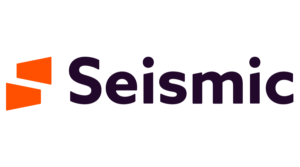
Director of Product Marketing, Seismic
“Mrs. Floyd was instrumental in ensuring the successful launch of our new features and capabilities in the Strategy and Planning pillar of the Enablement Cloud, particularly during a critical period when our PMM was on maternity leave. Mrs. Floyd’s ability to quickly get up to speed on our offering and seamlessly integrate into our team was remarkable. Her strategic insights and hands-on approach significantly contributed to the development and execution of our go-to-market strategy, making her a vital asset to our product marketing efforts.”
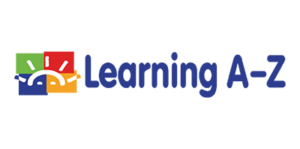
Director of Product Marketing, Learning A-Z
“Mrs. Floyd played a pivotal role in reshaping the positioning and messaging for Raz-Plus. Her deep understanding of our product and market dynamics enabled her to craft a compelling message that resonated with our target audience. Mrs. Floyd’s strategic approach and creative insights were crucial in successfully bringing this new message to market, significantly enhancing our product’s visibility and appeal.”
![]()
Director of Demand Generation, TEGNA
“I worked with Mrs. Floyd for several years in different capacities. First, we were on the same marketing team in her role as Senior Product Marketing Manager. While the team was bisected into national and SMB functions, Mrs. Floyd provided key strategic guidance to keep the entire brand messages aligned. Then I was thrilled to see her move to Director of Marketing. Mrs. Floyd always demonstrated exceptional leadership skills in trusting her team to build and support plans for business growth while also offering the necessary advice and direction to ensure the success of those plans. She continually maintained and shared her intimate knowledge of the product catalog and of the digital marketplace for SMBs.”

Chief Executive Officer, MindPlay
“Mrs. Floyd was instrumental in the creation of our new product, MindPlay Reading Studio. She developed the product’s name, crafted its positioning, and spearheaded the go-to-market strategy. Mrs Floyd’s ability to understand our vision and translate it into a clear, compelling message was invaluable. Her strategic insights and dedication ensured that MindPlay Reading Studio was launched successfully and met with a strong reception in the market. ”

VP of Product Strategy, Sentieo
“Mrs. Floyd was instrumental in shaping Sentieo’s product marketing strategy, which was later acquired by Alphasense. She developed our messaging framework and go-to-market strategy, which significantly improved our positioning and market penetration. Mrs. Floyd’s strategic insights and thorough understanding of the market dynamics helped us to effectively communicate our value proposition and gain a stronger foothold in the industry.”
More detailed achievements, references and testimonials are confidentially available to clients upon request.
Client Telephone Conference (CTC)
If you have any questions or if you would like to arrange a Client Telephone Conference (CTC) to discuss this particular Unique Consulting Service Proposition (UCSP) in more detail, please CLICK HERE.














